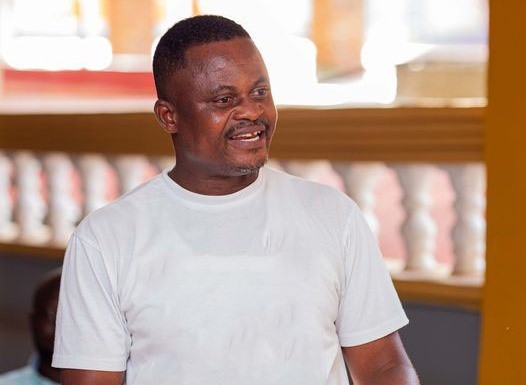The International Association for Global Peace (IAGP), has urged world leaders to implement a comprehensive programme to address violent extremism.
The group said the accelerated action and programme must focus on prevention, intervention, and rehabilitation by targeting the root causes of radicalisation.
According to the IAGP, violent extremism poses a significant threat to global peace, stability, and social cohesion.
Speaking in an interview, the International President of IAGP, Raphael Godlove Ahenu, said violent extremism threatens the security and fundamental rights of individuals globally and undermines the attempts of many countries to achieve sustainable peace.
He explained that violent extremism has cost thousands of lives and more than $100 billion in losses and it continues to challenge critical development goals in Africa.
He mentioned ideological indoctrination, socioeconomic marginalisation, political grievances, online radicalisation as well as bad governance as factors fueling violent extremism.
Mr. Ahenu observed the menace has resulted in devastating consequences, including the loss of innocent lives, the destruction of communities, and the erosion of trust among diverse populations.
The International President of IAGP intimated that violent extremism is a fundamental social problem, which calls for social solutions where everyone is a stakeholder.
He stated that many violent extremists work by recruiting disenfranchised youth and inciting them to commit acts of violence.
"While young men and women in the beneficiary countries seek opportunities to invest their potential, they are often negatively affected by poverty, marginalisation, unemployment and under-employment,’’ Mr Ahenu added.
He noted this makes them a vulnerable target of recruitment by violent extremist groups that exploit their frustrations and vulnerability.
He disclosed that IAGP is currently seeking partnerships and funding from international donors, governmental agencies, and private sector organisations to ensure long-term financial support for the implementation of its program code-named Strengthening Country Resilience Against Violent Extremism (SCRAVE).
The programme aims to create a holistic approach to address violent extremism, integrating prevention, intervention, and rehabilitation strategies by fostering community resilience, promoting inclusive dialogue, providing support to at-risk individuals, and working towards a safer and more peaceful society.
According to him, the programme further seeks to strengthen the capacity of local institutions, community organisations, and civil society actors to sustain and lead the efforts against violent extremism in various countries.
Latest Stories
-
Real Madrid beat Sevilla to keep pressure on leaders Atletico
51 minutes -
Liverpool put six past Spurs to go four points clear
53 minutes -
Manchester United lose 3-0 at home to Bournemouth yet again
56 minutes -
CHAN 2024Q: ‘It’s still an open game’ – Didi on Ghana’s draw with Nigeria
1 hour -
CHAN 2024Q: Ghana’s Black Galaxies held by Nigeria in first-leg tie
2 hours -
Dr Nduom hopeful defunct GN bank will be restored under Mahama administration
3 hours -
Bridget Bonnie celebrates NDC Victory, champions hope for women and youth
3 hours -
Shamima Muslim urges youth to lead Ghana’s renewal at 18Plus4NDC anniversary
4 hours -
Akufo-Addo condemns post-election violence, blames NDC
4 hours -
DAMC, Free Food Company, to distribute 10,000 packs of food to street kids
5 hours -
Kwame Boafo Akuffo: Court ruling on re-collation flawed
5 hours -
Samuel Yaw Adusei: The strategist behind NDC’s electoral security in Ashanti region
6 hours -
I’m confident posterity will judge my performance well – Akufo-Addo
6 hours -
Syria’s minorities seek security as country charts new future
6 hours -
Prof. Nana Aba Appiah Amfo re-appointed as Vice-Chancellor of the University of Ghana
6 hours

